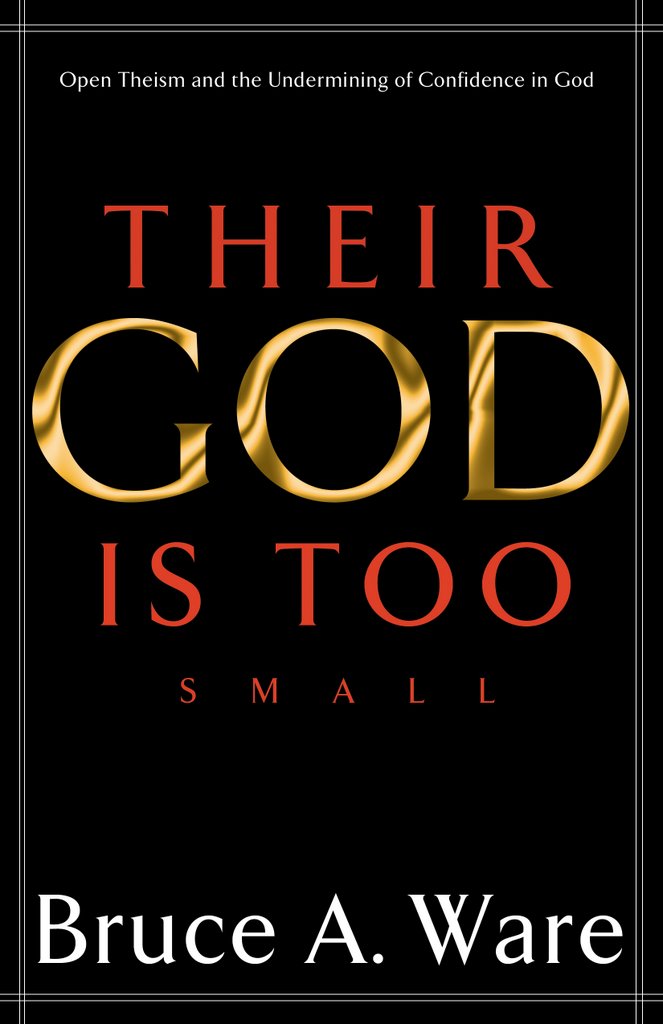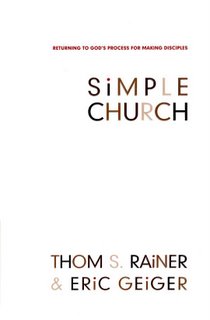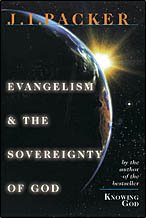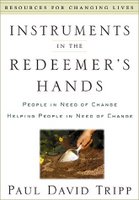Obviously not an exhaustive examination, simply an initial one…
God’s act of justification is a complex yet simple issue that has been debated over the centuries and even acted as an ecclesiastical divider that was instrumental in the beginning of what is now referred to as the Protestant Reformation. A proper understanding of sinful man’s justification will result in a greater appreciation of the unmerited grace that the Lord has poured out upon His children who were chosen “before the foundation of the world” (Eph 1:4). So important is the issue of justification that the Apostle Paul devoted much of his letter to the Romans in explaining the requirement, the remedy, and the result of God’s act of justification in the life of the sinner and from this letter is where this paper will draw the majority of its content.
Before examining the implications of justification, however, the necessity arrives to define the term and see its uses as seen in the inspired writings of New Testament Scripture. The words for “justification”, “justify”, and “justified” all derive themselves from the word “dikaioo” which is defined as “to deem to be right” (Vines, “justification, justifier, justify”, 339). According to The Strongest NASB Exhaustive Concordance the word dikaioo (or its derivatives) is used thirty-five times in the New Testament, primarily by the Apostle Paul. Of those thirty-five occurrences, seventeen are found in the epistle to the Romans, penned by the Apostle Paul implying that Paul’s understanding of justification was quite imperative to his entire view of salvation and the Christian’s new life in Christ. Other possibilities for translation are “righteous, to show to be righteous, to declare righteous, an ordinance, a sentence of acquittal or condemnation, a righteous deed, or the act of pronouncing righteous” (Strongest 1342, 1343, 1344, 1345, 1346, 1347). Most noteworthy is the act of declaring righteous as opposed to earning righteousness. Also, it is important to note that in Paul’s usages in Romans, to be justified, is to be acted upon from an outside source as opposed to an internal change within the individual. For the purposes of this paper, and to summarize all of the above the following definition will be used for justification: “Justification is an instantaneous legal act of God in which He (1) thinks of our sins as forgiven and Christ’s righteousness as belonging to us, and (2) declares us to be righteous in His sight” (Grudem 723).
As previously stated, Paul addresses three issues dealing with justification throughout the book of Romans – requirement, remedy, and result. The requirement for justification is set forth in the first three chapters of his epistle as he lays the foundation that “all have sinned and fall short of the glory of God” (Rom 3:23). He begins his argument with a definition of the gospel and his assertion that he [Paul] is “not ashamed of the gospel, for it is the power of God for salvation to everyone who believes, to the Jew first and also to the Greek. For in it the righteousness of God is revealed […and…] the wrath of God is revealed” (Rom 1:16, 17, 18). The gospel, or God’s accurate revelation of Himself to His chosen people, is an act that is purely motivated by God’s grace and not merited by any of the recipients of His special revelation. Paul continues that “since the creation of the world His invisible attributes, His eternal power and divine nature, have been clearly seen, being understood through what has been made, so that [all people everywhere at all times] are without excuse” (Rom 1:20). Because of the sinful nature of humanity, apart from being acted upon by God’s grace, man will always choose that which is sinful, that which is contrary to the character and nature of God, as he is in essence bound to do so. Although God has set in the hearts of men to know right from wrong, men throughout the centuries subsequent to the Fall of man have “exchanged the truth of God for a lie, and worshipped and served the creature rather than the Creator” (Rom 1:25). Therefore, as all men are guilty of sin which leads to death, they are in need of an acquittal, or a declaration, if their hope is to live in eternal paradise of the heavenly kingdom of God. And this declaration will not come from within themselves, for what man can appeal to his own authority or initiative when his own initiative will lead him astray every time? As Augustine wrote in his Confessions in the early fifth century, “O Holy God…when Your commands are obeyed it is from You that we receive power to obey them.” Augustine was merely confirming what Paul had written four hundred years prior – man is completely responsible for his sin and is unable to save himself from the wrath that is due him or to declare himself righteous or not guilty, in the eyes of God. But the wrath of God demands justice, it is required.
Therefore, if God’s wrath demands justice as a requirement for the punishment of sin, where is this remedy for justification to come from? Where might man find the ability to declare himself righteous in the eyes of God? Might it come from a perfect obedience to a set of standards or laws? Never, for Paul declares that “by the works of the Law no flesh will be justified in is sight; for through the Law comes the knowledge of sin” (Rom 3:20). So where might one find the remedy? The only answer is as a result of the sacrificial death of Jesus Christ “for all those who believe… [who are being] justified as a gift by His grace through the redemption which is in Christ Jesus” (Rom 3:22, 24). Purely as an act of God’s grace He chose to declare “not guilty” those who would believe on Jesus Christ as Lord. Paul later states that the ungodly man is justified as a result of his faith and not by his works, and therefore, the sinner’s “faith is credited as righteousness” (Rom 4:5). It is imperative to note that the sinner did nothing to earn the righteousness that was given to him. Rather it was “credited” to him. It was a gracious gift of the Redeemer who freely chose to act out of His own goodness, not out of any merit that the sinful man may have displayed internally or externally. In fact, to be justified, or to receive justification, does not change the inward being of the sinner at all. As Grudem clarifies,
“Here Paul cannot mean that God “makes the ungodly to be righteous” (by changing them internally and making them morally perfect), for then they would have merit or works of their own to depend on. Rather he means that God declares the ungodly to be righteous in His sight, not on the basis of their good works, but in response to their faith” (723).
The inner being is left unchanged, as through justification, it is only God making it possible for Him to see the righteousness of Christ - the only One who is truly righteous – covering the life of the sinner. “When a judge justifies an accused person he does not make that person an upright person. He simply declares that in his judgment the person is not guilty of the accusation but is upright in terms of the law relevant to the case” (Murray 119). The requirement for justification was set forth in that the justice of God and the wrath of God must be satisfied, and we see through Holy Writ that the only One capable of satisfying such wrath and justice was the person Jesus Christ. “Through one act of righteousness there resulted justification of life to all men. For as through one man’s disobedience the many were made sinners, even so through the obedience of the One the many will be made righteous” (Rom 5:18-19). The obedience of Christ to die on the cross for sinful humanity is the act of righteousness that was able to then allow for the declaration of those whom He foreknew to be considered righteous, and therefore justified. Jesus Christ is the only remedy for redemption.
Therefore, as the requirement of justification is evident in that the wrath of God must be satisfied and the justice of God administered, the remedy for justification is found only through the atoning death of Jesus Christ who “knew no sin to be sin on our behalf, so that we might become the righteousness of God in Him” (2 Cor 5:21), what then is the result of our justification? What is the effect on the ungodly who has now been declared to be righteous? This result is of utmost importance if we are to truly understand God’s redemption of His people. As Arthur Pink comments, “while the soul is ignorant of the doctrine of Justification, there can be no real and intelligent assurance of its acceptance in the Beloved” (138). The initial act of justification allows holy God to look upon unholy man and see the righteousness that Christ has provided. However, as stated above, the inner man has yet to be effected and in essence man is seen as being merely neutral before God. Within God’s economy, sinful man is at this point capable of receiving God’s forgiveness for sin. It is at this point then that God is able to impute righteousness to us, which is that “God thinks of Christ’s righteousness as belonging to us, or regards it as belonging to us. He ‘reckons’ it to our account” (Grudem 726).
It is at this point that the Roman Catholic Church found a large disagreement with those responsible for the Protestant Reformation as the Roman Catholic position is that justification results in the inner change of man which will produce faith and good works as a means to salvation (727-728). This view, however, diminishes the emphasis on God’s gracious choosing to act on the life of the sinner. For if salvation is reduced to being merely by works, then the work of Christ is seen as secondary and not foremost. The traditional Roman Catholic position since the Council of Trent in 1546 has been that there is an “infusion” of righteousness as opposed to an “imputation” and the difference has severe ramifications on a gospel that is to be by grace alone.
“And the seriousness of the Romish error is not so much that it has confused justification and renewal but that it has confused these two distinct acts of God’s grace and eliminated from the message of the gospel the great truth of free and full justification by grace. That is why [Martin] Luther endured such travail of soul as long as he was governed by Romish distortion, and the reason why he came to enjoy such exultant joy and confident assurance was that he had been emancipated from the chains by which Rome had bound him; he found the great truth that justification is something entirely different from what Rome had taught” (Murray 119).
This debate raged on, but as a result of those who were called by God to be faithful to Holy Scripture, the gospel of grace was recovered, not that it was lost, but it was being ignored. The Apostle Paul’s words then rang true that “therefore there is now no condemnation for those who are in Christ Jesus” (Rom 8:1). For he continues, “for those whom He foreknew, He also predestined to become conformed to the image of His Son, so that He would be the firstborn among many brethren; and those whom He called, He also justified; and these whom He justified, He also glorified” (Rom 8:29-30). So what is the grand result of being justified as a result of God acting on an individual not by the merits of any of his own actions, but solely on the merits of God’s gracious choice? It is that there is no condemnation, nor may there ever be! For those who are in Christ, God sees them as the righteousness that Christ alone holds. Thus, for God to condemn those whom He has justified would be a defiance to His character, for He cannot change, He cannot tell a lie, and He may not disown Himself (Heb 13:8; 6:17-18; 2 Tim 2:13). And if God will not condemn those whom He has chosen to declare not guilty as an act of His gracious justification, who then can call an accusation to God’s elect? No one may do so and have such an accusation be efficacious in the bringing about of condemnation. Not even the father of lies himself can bring forth such an accusation against God’s children. And this result is eternal.
God’s act of justification in the life of the sinner is central to the salvation of man and its proper understanding will evoke a grateful response of praise in the individual. Acknowledging that man is completely dead in his trespasses and may only be brought to life through the life-giving breath of the Savior causes one to see more clearly that man’s works, however mighty they may be, are merely chaff to be blown away in the wind in comparison to the greatest work that has been performed by Christ and imputed to ungodly men. The requirements for justification were set forth when God declared His justice in the Garden of Eden, refusing to ignore sin but dealing with it at its inception. From that point on, the remedy for justification has been through a blood sacrifice. In the Garden, God graciously provided such a sacrifice and on Golgotha, He mirrored this action again. God graciously provided the spotless lamb of Christ to die on behalf of sinful men. And as a result, sinful men could then be declared righteous in His sight and be afforded the opportunity to spend an eternity with Him, rather than continue to be at enmity with Him. From beginning to end in God’s act of redemption, God’s unmeritorious acts of grace perform the requirements that man could not perform, provides the remedy that man could not provide, and produces the results that man in himself could not produce. “To the only wise God, through Jesus Christ, be the glory forever. Amen” (Rom 16:27).
Works Cited
Augustine, Aurelius of Hippo. Confessions. Trans. By R.S. Pine-Coffin, New York: Penguin Books, 1961. 181 (ix, i) as quoted in Legacy of Sovereign Joy: God’s Triumphant Grace in the Lives of Augustine, Luther and Calvin by John Piper. Wheaton, IL: Crossway Books, 2000. 56.
Grudem, Wayne. Systematic Theology: An Introduction to Biblical Doctrine. Grand Rapids, MI: Zondervan Publishing House, 1994.
Holy Bible: New American Standard Bible-Updated Edition. Grand Rapids, MI: Word Publishing, 1995.
Murray, John. Redemption: Accomplished and Applied. Grand Rapids, MI: Eerdmans Publishing Company, 1955.
Pink, Arthur W. The Sovereignty of God. Carlisle, PA: The Banner of Truth Trust, 1928, rptd 1998.
Vine, W.E. Vine’s Complete Expository Dictionary of Old and New Testament Words. Nashville, TN: Thomas Nelson Publishers, 1996.
Read Complete Article...
Summary only...















